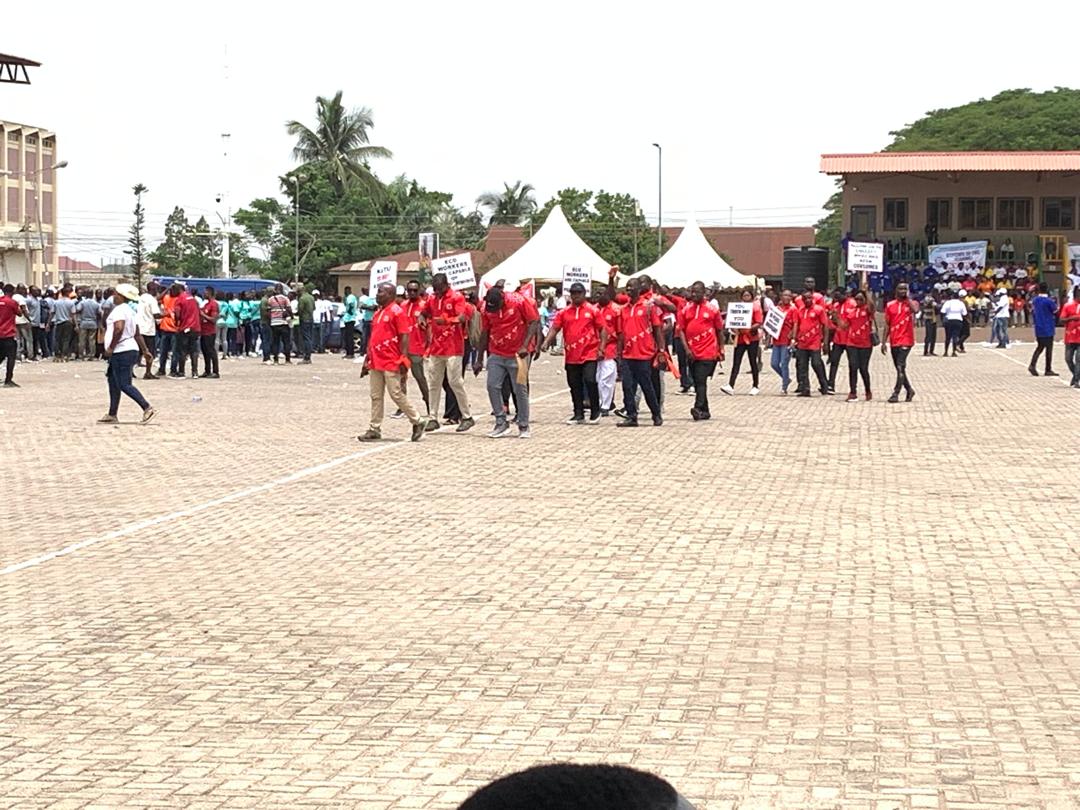
The theme for yesterday’s May Day celebration was auspiciously “Resetting Pay and Working Conditions in Ghana: The Role of Stakeholders”.
Ghanaian workers have over the years not had commensurate pay for their labour.
Their efforts and the dividends these bestow on the national coffers appear to be taken for granted.
The situation is like ‘take it or leave it’, and this has gone on for far too long.
Characteristic of such occasions are the usual showing up of political leadership and the usual rhetoric interspersed with promises and pointers at what government has done to assuage the pain of workers.
The standard has been pulling out the textual template and making adjustments to give a touch of newness to the May Day speech. In the end, the worker remains in his usual state of hopelessness. Living from hand to mouth has been the lot of the average Ghanaian worker, as he labours on to serve his compatriots.
In subsequent years, such occasions should be used to reflect sincerely on what changes there have been since the last celebration of the occasion.
The manifesto promises should be put to integrity test by leadership of labour.
It would be useless and a total waste of everybody’s time if such moments are used to throw more dust into the eyes of workers whose day it is.
Resetting pay is critical in the theme of the occasion because the keyword in here constitutes a cornerstone in the policy of the John Mahama government, but what are we witnessing? If what we are witnessing as in the tampering with the workings of the judiciary and the dismissal of workers from their places of work is what the resetting is all about, then we demand a reversal.
Recently, government engaged labour over pay increase. At the end of the day, many felt the Ghanaian worker had been treated fairly. The figure which was settled upon, it turned out, fell short in terms of value to what the previous government accepted and implemented.
Be it as it may, the Ghanaian worker remains where he or she is, static, no betterment in living standards.
The leadership of labour must prove skeptics wrong: there is a perception that they have been reduced to sellouts to government.
That would be unfortunate if it would be so. Such anomalies, although difficult to prove, can be detected in posturing, and enough of such body language were presented during the so-called galamsey demonstrations.
Labour added its voice to the politicised so-called anti-galamsey agitations and even expressing desire to shut down the country.
We were left with no option than to agree that the leadership of labour at the Trades Union Headquarters in Accra had been dining with the government on the blind side of workers.
Government is the most critical stakeholder in the matter of resetting the salaries of workers.
So far, such resetting remains a mere rhetoric as evidenced in the recent government and labour engagement over salary increment in the country.
Therein lies our consideration of the theme as mere rhetoric. Labour deserves better, not pittance.
The post Beyond The May Day Rhetoric appeared first on DailyGuide Network.
Read Full Story

















Facebook
Twitter
Pinterest
Instagram
Google+
YouTube
LinkedIn
RSS